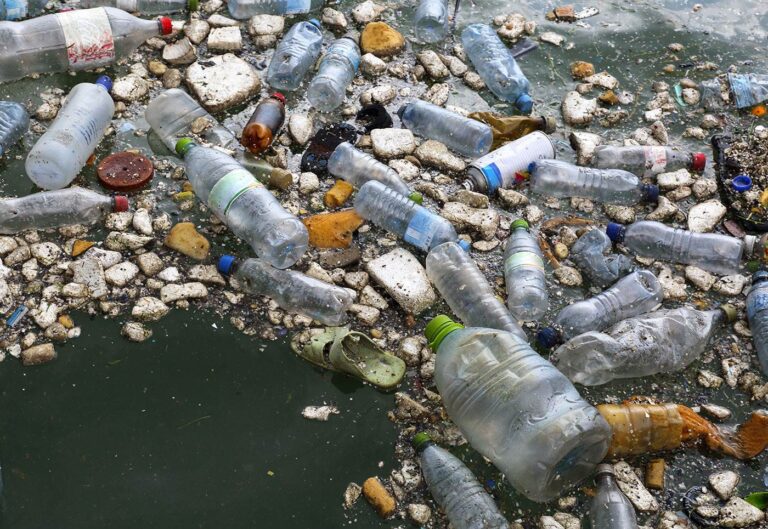How Upgrading Your Appliances Can Reduce Your Carbon Footprint (and Save Money)
 Appliances are major contributors to your home’s energy and water usage. If your appliances are old, chances are they are not as efficient as they could be. If you’re looking for a way to reduce your carbon footprint and save money on bills, here’s how impactful upgrading your appliances can be.
Appliances are major contributors to your home’s energy and water usage. If your appliances are old, chances are they are not as efficient as they could be. If you’re looking for a way to reduce your carbon footprint and save money on bills, here’s how impactful upgrading your appliances can be.
Reducing Pollution and Solid Waste
Manufacturers make newer household appliances from biodegradable, recyclable materials. Modern fridges, stoves, washing machines, and other appliances are safer for the environment and won’t increase harmful atmospheric pollutants in landfills as generations of their predecessors have. It makes sense to upgrade to better-working household appliances that will stand the test of time in the comfort of your home and are more energy and water-efficient.
Deciding to upgrade ultimately prompts somebody else to make a similar decision. Your old faithful could become an upgrade to another household looking to replace its existing appliance without the means to do so otherwise.
Somebody else can always use a fully functioning second-hand household appliance to upgrade their existing one, so consider selling or donating your older appliance to keep it out of a landfill. By doing so, you will help reduce carbon dioxide and equivalent emissions by a projected 10.36 to 11.29 gigatons before 2050.
Conserving Water
Water is one of the world’s most precious commodities, and its population is depleting it quickly. Conserving water saves energy, which you use every time you filter, heat, and pump it for domestic use.
Using less of life’s most valuable necessity means there’s more left in the world’s wetland ecosystems that sustain wildlife like herons, otters and fish. So, not only are you reducing your carbon footprint by saving energy, but you’re also conserving wildlife. You can reduce your water consumption with an upgraded laundry machine or dishwasher.
For example, hotels are improving their laundry services in many ways, as 30% of guests stay three nights or more and require the service. These improvements include using energy-efficient machines that conserve water. Likewise, you could invest in a washing machine with a green mode or eco-wash system for your home use. Consider swapping to a low-flow shower head in the bathroom to decrease your usage further.
Becoming More Energy-Efficient
Conserving energy in other ways is just as vital as cutting down on water usage. Different raw materials essential to power generation also risk depletion, so bear this in mind before buying a new household appliance.
A good starting point when upgrading your appliance is to check for ENERGY STAR certification on a new product. These appliances — from refrigerators to water heaters — will save energy in your home by helping you reduce fossil fuel use, creating a more environmentally friendly household.
Let’s use a smart thermostat as an example. A smart thermostat regulates temperature but, as its name suggests, does so more efficiently than your regular thermostat. This smart device adapts to your lifestyle and learns from your family’s movements.
When your house is empty, the smart thermostat drops the temperature to save energy and regulates the home’s heating and cooling cycles. With an included remote function, this is only one appliance where an upgrade can substantially reduce your carbon footprint.
Living Cleaner and Safer
A new appliance is more than just a visual attraction in your home. It also improves safety standards for you and your family. Environmentally certified ovens and stoves reduce the risk of gas leaks that could prove dangerous.
Air conditioners have long been a boiling point of discussion in environmental circles. Nowadays, certified eco-friendly systems can reduce emissions by up to 15%. Installing an updated air conditioner means you and your loved ones breathe fresher, cleaner air while doing your bit to reduce the world’s carbon footprint.
Saving Money
When you upgrade your home appliances, you’ll spend money. Although you won’t make any, you’ll undoubtedly save it in the long term.
You help sustainability initiatives and your back pocket by cutting down on your carbon footprint. Consider the money you’ll save on electricity, gas and water expenses alone. Adding in potential tax rebates offered through the Inflation Act for utilizing eco-friendly appliances could substantially impact your budget.
What Else Can You Do?
You and other Americans are responsible for doing everything possible to promote sustainability initiatives. Upgrading your household appliances to certified, energy-efficient ones increases the demand for these products even more.
By doing what makes logical sense in saving yourself money and using less energy and water, you’re doing your bit for the environment by reducing your carbon footprint. You’re also improving your safety and the outlook for the world’s future generations.


